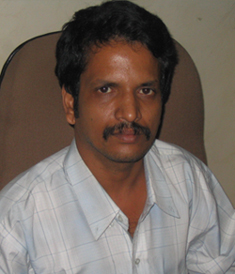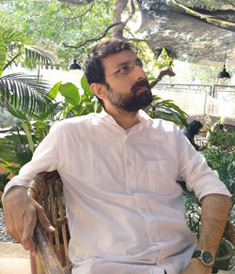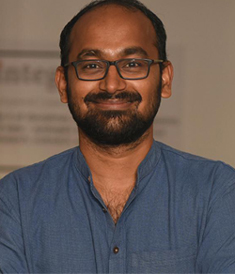Sustainability
Talk Title, Abstract & Bio of Speakers

Prof. B.K. Panigrahi
Presentation Schedule: 09.45 AM - 10.00 AM
Talk Title: EV Charging Infrastructure
Bio: Dr B K Panigrahi is presently working as a professor in the Electrical Engineering Department and head of Centre for Automotive Research and Tribology (CART), IIT Delhi, India. Prior to joining IIT Delhi in 2005, he has served as a faculty in Electrical Engineering Department, UCE Burla, Sambalpur, Odisha, India from 1992 to 2005. His research interest includes application of AI and ML tools and techniques to power system planning, operation, control, protection and management. Professor Panigrahi is presently also looking into the issues of EV charging infrastructures and the impact of fast charging infrastructure on the grid. He is serving as the editorial board member / associate editor/ special issue guest editor of different international journals published by IEEE, IET, Elsevier, Springer etc. He is also associated with various international conferences in various capacity. Dr Panigrahi has published more than 600 research papers in various international and national journals and conference proceedings. He is a fellow of INAE, fellow of NASI and Senior member of IEEE.

Ronak Sutaria
Presentation Schedule: 10.00 AM - 10.15 AM
Talk Title: Improving Air Quality in 133 'Non Attainment' Cities and 7000+ Rural Blocks of India with Low-Cost Sensors
Abstract: As of March 2022, India has around 300 Continuous Ambient Air Quality Monitoring Stations (CAAQMS - reporting air quality data every 15 minutes) and 800 "manual" monitoring stations (which report 2 air quality data points every week). India's Rs. 4000 Crore (USD $650 Million) flagship national policy for clean air called "National Clean Air Programme (NCAP)" is based on Particulate Matter (PM10) data collected from the 'manual' monitors.Advances in Low-Cost Air Quality Sensors in India have been supported by several Indian government agencies (such as the Department of Science and Technology, Ministry of Environment, Forests and Climate Change and few state Pollution Control Boards). Based on field evaluation and validation results, the central government in India has now started exploring applications which use low-cost air quality sensor data.The "Atmos - Real Time Air Quality" monitoring network has been part of several state and central government funded initiatives around low-cost air quality sensors.
This talk will focus on the IoT and Big Data technologies involved in building a nationwide AQ network, the policy and governance challenges around air quality data access for sustainable community initiatives and will introduce the concept of an 'AQ Data Directory' for the country.
Bio: Ronak Sutaria is the Founder and CEO of Mumbai-based and NASSCOM award-winning Startup Respirer Living Sciences. In December 2015, Ronak was amongst the earliest technology researchers to build and deploy the first ever low-cost air quality sensor network across the country. His company specializes in IoT and Big Data powered technologies for urban and rural data-driven policy research. Ronak collaborated with India's foremost research organizations including IIT Kanpur, Microsoft Research India and Shakti Sustainable Energy Foundation, in an effort to bring unparalleled scientific rigor to his work. These partnerships remain steadfast, resulting in the building and scaling of India's first scientifically calibrated, low-cost IoT sensor-based AQ monitoring network. The work has also been instrumental to bringing together air quality researchers, IoT and Big Data technologists, public health practitioners and UN Sustainable Development Goals (SDGs) policy researchers, to explore the potential of this technology to solve one of the most pressing climate issues of our time.

Karthik Ganesan
Presentation Schedule: 10.15 AM - 10.30 AM
Talk Title: Data-based approaches for sustainability
Abstract: This talk will focus on how data (or the lack of it) is shaping our approach to solving for sustainability. Faced with a myriad environmental and social challenges arising from our economic growth imperatives, we increasingly are looking to technology to be a panacea for many historical and emerging issues. I will delve into some examples that demonstrate the opportunity for innovators in the 'data for sustainability' space to look into, to drive home grown solutions for home grown problems! These will range from solving for electricity billing and collection, to remote monitoring for air pollution, to using transit data to address congestion woes.
Bio: Karthik is a Fellow at The Council on Energy Environment and Water (CEEW), a not-for-profit policy research organisation based in Delhi. As the Research Coordinator, he has a bird's eye view of CEEW's ongoing and planned research and ensures cross-team coherence for CEEW's research direction and imperatives. He also dons the hat of an internal adviser across research teams, creates institutional platforms that spur innovative approaches to solving for India's environmental policy challenges. His active research interest includes the study of India's thermal generation fleet, air pollution outcomes from the use of energy and studying urban congestion.
